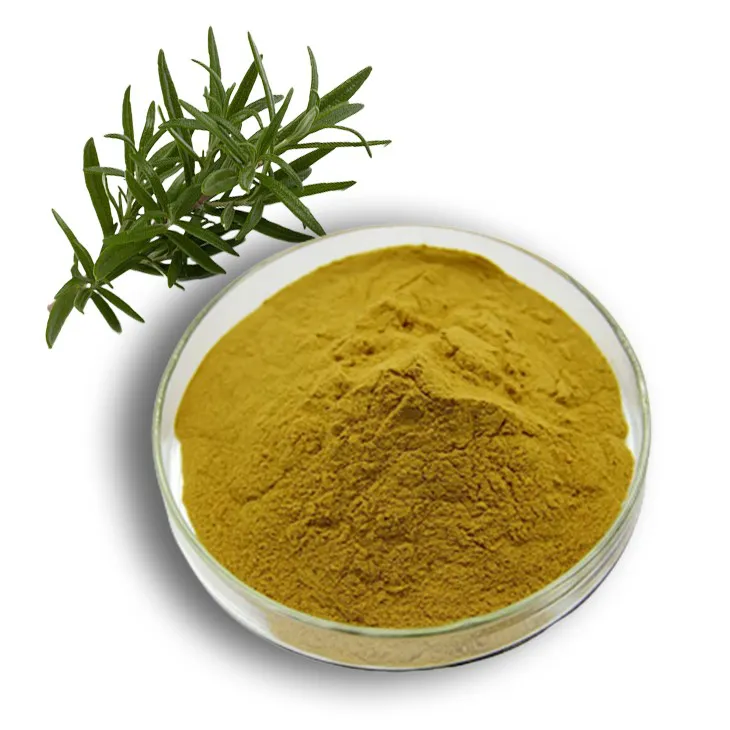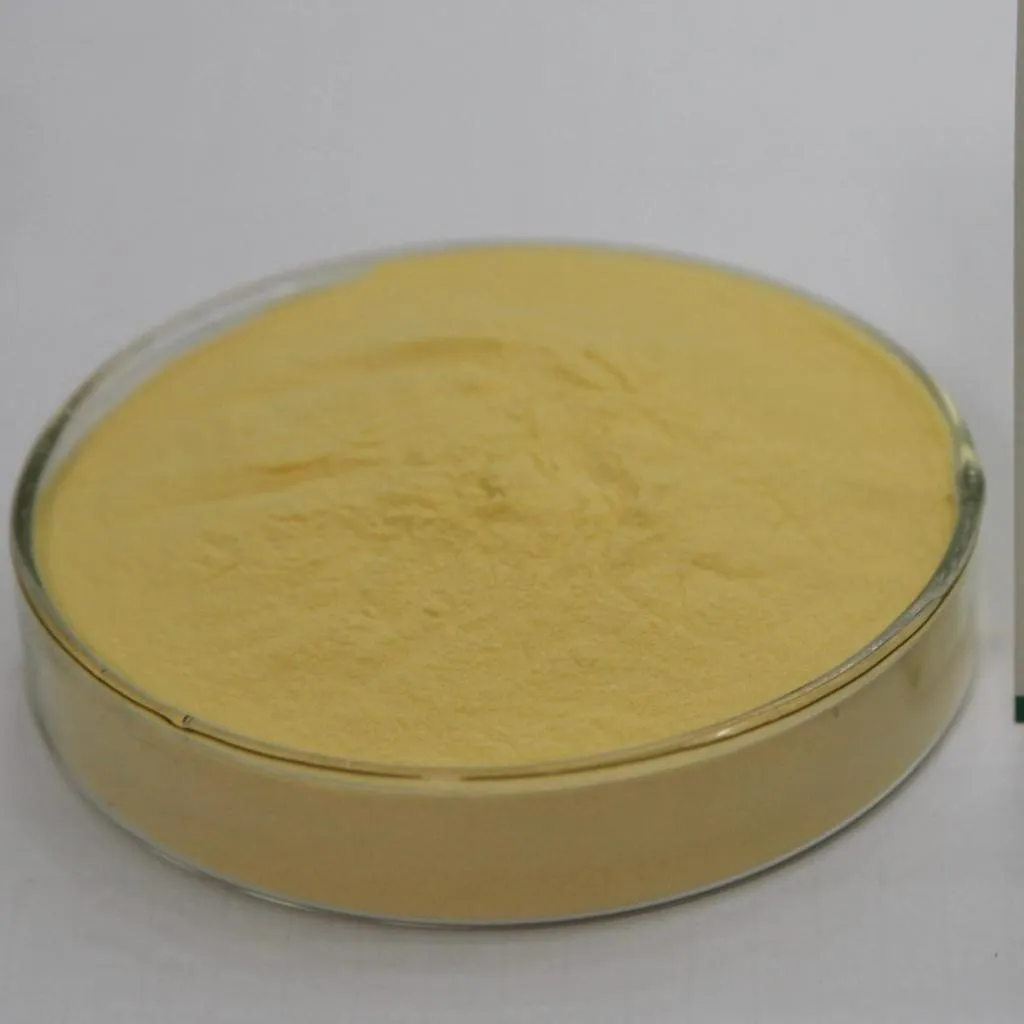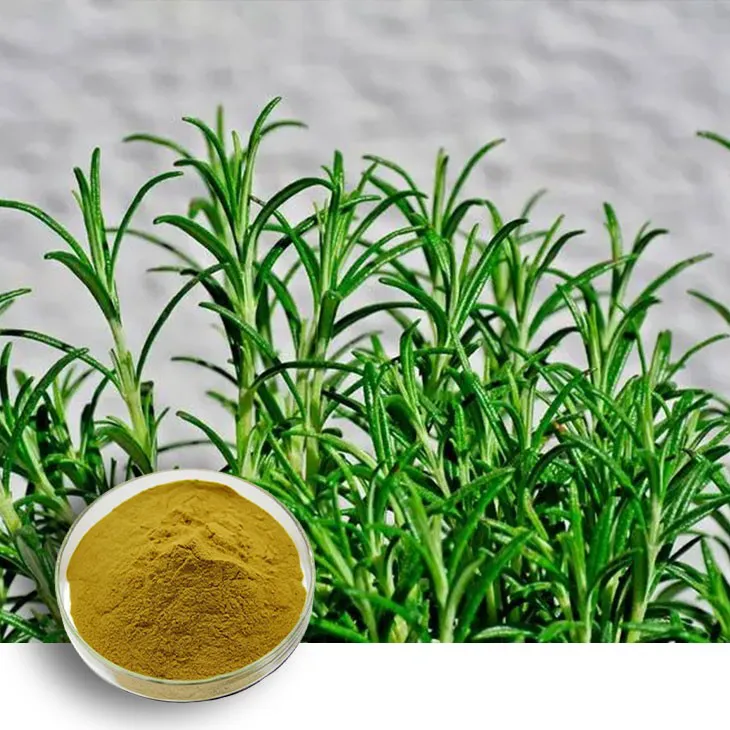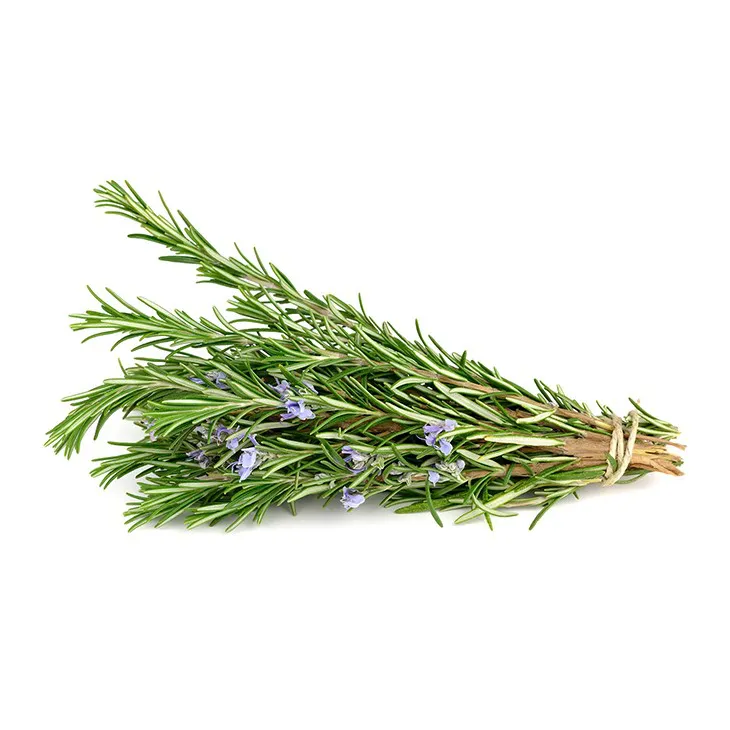- 0086-571-85302990
- sales@greenskybio.com
Rosemary extract can reduce high blood pressure.
2024-11-12

1. Introduction
Hypertension, or high blood pressure, is a prevalent health concern globally. It is a major risk factor for cardiovascular diseases, stroke, and kidney problems. Rosemary extract, derived from the rosemary plant (Rosmarinus officinalis), has been the subject of increasing research in recent years due to its potential health benefits, including its possible role in reducing high blood pressure.

2. What is Rosemary extract?
Rosemary extract is a concentrated form of the active compounds present in the rosemary plant. It contains a variety of bioactive components such as rosmarinic acid, carnosic acid, and ursolic acid. These compounds are responsible for many of the extract's biological activities.
Rosemary has been used in traditional medicine for centuries. It was known for its antioxidant, anti - inflammatory, and antimicrobial properties. The extract is obtained through various extraction methods, which aim to isolate and concentrate these beneficial compounds.

3. The Cardiovascular System and Hypertension
Before delving into how rosemary extract may affect hypertension, it is important to understand the normal functioning of the cardiovascular system and what goes wrong in hypertension.
The cardiovascular system consists of the heart and blood vessels. Blood pressure is the force exerted by the blood against the walls of the arteries. In a healthy individual, blood pressure is regulated by a complex interplay of factors including the heart's pumping action, the elasticity of blood vessels, and hormonal and neural mechanisms.
In hypertension, there is an imbalance in these regulatory mechanisms. The blood vessels may become less elastic, and the heart may have to work harder to pump blood. This can lead to damage to the blood vessels over time and an increased risk of various health problems.

4. Mechanisms by Which Rosemary Extract May Reduce High Blood Pressure
4.1. Antioxidant Activity
One of the main mechanisms through which rosemary extract may influence blood pressure is its antioxidant activity. Oxidative stress is implicated in the development of hypertension. Free radicals can damage the endothelial cells that line the blood vessels, leading to reduced production of nitric oxide.
Nitric oxide is a vasodilator, meaning it relaxes the blood vessels and helps to lower blood pressure. Rosemary extract, with its antioxidant components like rosmarinic acid, can scavenge free radicals and reduce oxidative stress. This, in turn, may protect the endothelial cells and support normal nitric oxide production, resulting in vasodilation and a reduction in blood pressure.
4.2. Anti - Inflammatory Effects
Chronic inflammation is also associated with hypertension. Rosemary extract has anti - inflammatory properties. It can inhibit the production of inflammatory mediators such as cytokines and prostaglandins.
By reducing inflammation in the blood vessels, rosemary extract may help to improve the function of the vascular endothelium. A healthy endothelium is crucial for proper blood vessel dilation and constriction, which are important for blood pressure regulation.
4.3. Effects on the Renin - Angiotensin - Aldosterone System (RAAS)
The RAAS is a key hormonal system involved in blood pressure regulation. When blood pressure drops, the kidneys release renin, which then activates a cascade of reactions leading to the production of angiotensin II, a potent vasoconstrictor, and aldosterone, which promotes sodium and water retention.
Some studies suggest that rosemary extract may interfere with the RAAS. It may inhibit the production or activity of renin or angiotensin - converting enzyme (ACE), which is involved in the formation of angiotensin II. By modulating the RAAS, rosemary extract could potentially lower blood pressure.

5. Evidence from Scientific Studies
Several scientific studies have investigated the effect of rosemary extract on blood pressure.
In animal studies, for example, rats fed with a diet supplemented with rosemary extract showed a significant reduction in blood pressure compared to the control group. These studies have provided valuable insights into the potential mechanisms at work, such as the antioxidant and anti - inflammatory effects observed in the animals' cardiovascular systems.
Human studies have also been conducted. Some small - scale clinical trials have reported a modest decrease in blood pressure in hypertensive patients who were given rosemary extract supplements. However, more large - scale, long - term studies are needed to confirm these findings and to determine the optimal dosage and treatment duration.
6. Possible Interactions within the Body
6.1. Interaction with Medications
It is important to consider the possible interactions between rosemary extract and medications used to treat hypertension. Some antihypertensive medications work by targeting specific mechanisms in the body, such as ACE inhibitors or beta - blockers.
Rosemary extract may potentially interact with these medications. For example, if it also modulates the RAAS, there could be an additive effect when taken with ACE inhibitors, which might lead to an excessive drop in blood pressure. On the other hand, it could also interfere with the absorption or metabolism of some medications.
Therefore, it is crucial for patients taking antihypertensive medications to consult their healthcare providers before starting to take rosemary extract supplements.
6.2. Interaction with Diet
The diet can also influence the effectiveness of rosemary extract in reducing blood pressure. A diet high in sodium, for instance, can counteract the blood - pressure - lowering effects of rosemary extract. Sodium promotes water retention and increases blood volume, which in turn raises blood pressure.
Conversely, a diet rich in fruits, vegetables, and whole grains, which are also beneficial for cardiovascular health, may enhance the effects of rosemary extract. These foods contain other nutrients and bioactive compounds that can work synergistically with rosemary extract to improve blood pressure regulation.
7. How to Incorporate Rosemary Extract into the Diet
There are several ways to incorporate rosemary extract into the diet.
- Cooking with Rosemary: Using fresh or dried rosemary in cooking is a common way to introduce the beneficial compounds into the diet. Rosemary can be added to roasted meats, vegetables, soups, and stews.
- Rosemary Tea: Brewing rosemary leaves into a tea is another option. Simply steep a few sprigs of fresh rosemary or a teaspoon of dried rosemary in hot water for about 5 - 10 minutes.
- Supplements: Rosemary extract supplements are also available in the form of capsules or tablets. However, it is important to choose high - quality products from reliable sources and to follow the recommended dosage.
8. Conclusion
In conclusion, rosemary extract shows promise as a natural agent for reducing high blood pressure. Its antioxidant, anti - inflammatory, and potential effects on the RAAS suggest possible mechanisms through which it can influence blood pressure regulation.
However, while there is some evidence from scientific studies, more research, especially large - scale human trials, is needed to fully understand its effectiveness, optimal dosage, and potential interactions. For those interested in using rosemary extract to manage blood pressure, it is essential to consult a healthcare provider, especially if they are taking medications or have other underlying health conditions.
FAQ:
What is rosemary extract?
Rosemary extract is a substance derived from the rosemary plant (Rosmarinus officinalis). It contains various bioactive compounds such as rosmarinic acid, carnosic acid, and others. These compounds are thought to be responsible for its potential health benefits, including the possible reduction of high blood pressure.
How does rosemary extract reduce high blood pressure?
Rosemary extract may reduce high blood pressure through several mechanisms. It can have antioxidant effects, which help protect the cells in the cardiovascular system from oxidative stress. It may also affect the blood vessels, causing them to relax. Additionally, it could potentially interact with certain hormones or enzymes in the body that are involved in blood pressure regulation.
Are there any side effects of using rosemary extract for high blood pressure?
While rosemary extract is generally considered safe when used in moderation, some people may experience side effects. These can include allergic reactions, especially in those who are allergic to plants in the Lamiaceae family. In large amounts, it may also cause digestive issues such as stomach upset or diarrhea. However, more research is needed to fully understand the potential side effects, especially when it is used specifically for blood pressure management.
Can rosemary extract be used as a sole treatment for high blood pressure?
No, at present, rosemary extract should not be used as the sole treatment for high blood pressure. High blood pressure is a complex condition, and current medical guidelines recommend a combination of lifestyle changes (such as diet and exercise) and, in many cases, prescription medications. Rosemary extract may be used as a complementary approach, but it should be under the supervision of a healthcare provider.
How much rosemary extract should be taken to potentially affect blood pressure?
There is no standard recommended dose for using rosemary extract to affect blood pressure at present. The appropriate amount may vary depending on factors such as a person's overall health, age, and the form of the extract (e.g., capsule, tincture). More research is needed to determine the optimal dosage for this potential blood pressure - reducing effect.
Related literature
- The Effects of Rosemary Extract on Cardiovascular Health"
- "Rosemary Extract: A Potential Natural Remedy for Hypertension?"
- "Mechanisms of Action of Rosemary Extract in Blood Pressure Regulation"
- ▶ Hesperidin
- ▶ Citrus Bioflavonoids
- ▶ Plant Extract
- ▶ lycopene
- ▶ Diosmin
- ▶ Grape seed extract
- ▶ Sea buckthorn Juice Powder
- ▶ Fruit Juice Powder
- ▶ Hops Extract
- ▶ Artichoke Extract
- ▶ Mushroom extract
- ▶ Astaxanthin
- ▶ Green Tea Extract
- ▶ Curcumin
- ▶ Horse Chestnut Extract
- ▶ Other Product
- ▶ Boswellia Serrata Extract
- ▶ Resveratrol
- ▶ Marigold Extract
- ▶ Grape Leaf Extract
- ▶ New Product
- ▶ Aminolevulinic acid
- ▶ Cranberry Extract
- ▶ Red Yeast Rice
- ▶ Red Wine Extract
-
Alisma Extract
2024-11-12
-
Clove Powder
2024-11-12
-
Citrus bioflavonoids
2024-11-12
-
Mangosteen extract powder
2024-11-12
-
Epimedium extract powder
2024-11-12
-
Ginger Extract
2024-11-12
-
Dandelion Leaf Extract
2024-11-12
-
Beta Carotene
2024-11-12
-
Selenium yeast
2024-11-12
-
Oat Straw Extract Powder
2024-11-12





















